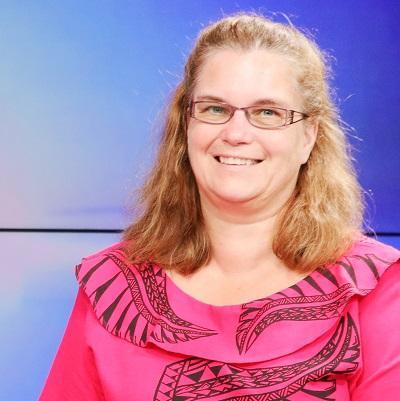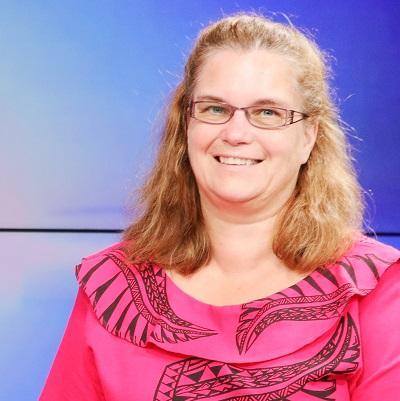 Good morning or good afternoon, it is my pleasure to be able to be here with you today to speak a bit about the regional Qualifications and Standards work of the Pacific Community, carried out through the Educational Quality and Assessment Programme, also known as EQAP.
Good morning or good afternoon, it is my pleasure to be able to be here with you today to speak a bit about the regional Qualifications and Standards work of the Pacific Community, carried out through the Educational Quality and Assessment Programme, also known as EQAP.
The idea of learner and labour mobility within the Pacific is a long-standing priority for individuals, industry and governments – something that is well known to all who are gathered here today. Let me start with what I expect is a relatively familiar situation. The skill area may differ, but the idea remains the same. Just by way of explanation of my choice of example, my eldest son is a journeyman electrician, as is my youngest brother.
Imagine for a minute that there is a Skills Institute in your country that offers qualifications in the electrical field. These might be everything from master electrician down to assistant level qualifications. To be within government regulations, it is necessary that the qualifications and institute are vetted for quality in order for the national government to allow the institute to operate and provide electrical education programs to students. That vetting process is recognized nationally by employers who know that an electrician or electrician’s assistant holding that qualification comes with a specific set of skills and knowledge that have been demonstrated at an acceptable level and that employer can count on the quality of the training that employee has received.
Now imagine that the demand for electricians and electrician’s assistants is present in three neighbouring countries, exceeding what their own institutions are able to provide. The electrical workers in your country who may not have employment could benefit by travelling to one of those neighbouring countries where work would be possible and likewise, the countries in question would be able to meet their labour needs with appropriately trained and competent electrical workers. But this only works if there is trust that the quality and content of the qualification your electricians have as graduates of your national Skills Institute are on par with the skills and knowledge expected by the other countries.
One way to manage the situation is for countries to enter into bilateral efforts to mutually recognize specific qualifications or sets of qualifications, allowing workers trained in either country to access employment across both countries. The advantage of this approach is that the regulators and industry experts in both countries are deeply involved in the process and are able to personally as well as formally build their confidence in the quality and content of the other’s qualification. The disadvantage is that the efforts need to be undertaken all over again each time recognition with another jurisdiction is desired. In my example of electrical qualifications, and three countries needing skilled workers, this would entail three distinct and intensive processes between each of the three neighbouring countries and your own country, to facilitate the recognition of the qualifications.
Recognizing the complexity of the issues, Pacific Ministers of Education attending the inaugural Pacific Islands Forum Education Ministers Meeting (FEdMM) in Auckland, New Zealand in 2001 agreed to ‘consider the setting up of a regional qualifications framework covering basic, primary, secondary, TVET and tertiary education, benchmarked against appropriate international standards and qualifications’. The ministers’ decision was prompted by a broader regional concern, expressed by Forum Economic Ministers in 1999, about the declining quality of Pacific education, which underpins the development of human resources. The Economic Ministers noted that national and regional socio-economic development must be founded on knowledgeable, skilled and competent citizens. Within the context of the twenty-first century, huge challenges are posed by the continuing diversification of educational programmes and provision, globalisation, and the exponential growth and influence of information and communications technology. So there is great pressure to ensure that qualifications and professional status acquired in one Pacific country are recognised both within the Pacific region and internationally. This is where the Pacific Qualifications Framework or PQF comes in.
The PQF is a reference framework that establishes comparability and facilitates recognition of qualifications across Pacific countries’ education and training systems, as well as with other regional or international frameworks.
Adopting international practice, the PQF is distinguished by two key characteristics. The first is that it is outcomes-based. Each framework level describes in broad terms the progressive complexity of knowledge, skills and competence from one level to the next higher level.
The second characteristic is that it is credit-based, where one credit represents the time an average learner takes to achieve the learning outcomes of a unit of study. Credits define the volume of learning for complete qualifications and their components. The total credit value of a qualification is the sum of the credits of its components which may be courses, papers, units, modules or competencies.
This system facilitates the transferability of learning as people move from one institution or country to another.
So how does it work? The PQF is a referencing device or translating instrument to enable one framework of qualifications to relate to other such frameworks; and relate a qualification in one framework to a qualification in a different framework. In order to determine comparability of national qualifications frameworks levels with the PQF levels, a referencing process is undertaken, taking into consideration the purposes of the framework, the context within which it is applied, the characteristics and design, the descriptors and credit profile, the definitions of qualification types, as well as the quality assurance arrangements that underpin each framework. Establishing the comparability of a national framework to the PQF will enable qualifications already accredited and registered on a national framework to be recognized at the appropriate level regionally and internationally.
The PQF has a set of defined qualification-type at each framework level, with a credit profile, and that defines how it relates to qualifications in other levels. This enhances transparency and understanding of the relationship between qualifications. As a geographic regional framework, the PQF is an enabling instrument that is supported by regional agreements as well as international conventions and protocols.
The PQF is underpinned by the Pacific Quality Assurance Framework (PQAF) that provides minimum quality standards and guidelines for accrediting agencies, institutions, programmes and courses. The PQAF establishes a common baseline for all Pacific Islands’ accrediting agencies and Institutions to apply. It was informed by the International Network for Quality Assurance Agencies in Higher Education (INQAAHE) Guidelines of Good Practice and the Asia Pacific Quality Network’s Chiba Principles.
Going back to my example of electricians moving among countries, we know that getting a qualification recognized on any framework, national or regional, is a process that involves a great deal of work by industry experts, quality assurance officers and government regulators to ensure that the qualification is robust and meets the requirements of the jurisdiction in which it is being recognized.
Referencing national frameworks against an agreed regional framework such as the PQF streamlines the process as the regional framework provides the means by which countries can be assured of the quality and level of one another’s qualifications without undertaking multiple individual referencing actions. As the number of frameworks referenced against the regional framework grows, the quantity of recognized qualifications and jurisdictions also grows exponentially, and this is the key for paving the way to recognition of Pacific qualifications within the region and internationally; exciting work that Eve outlined in her presentation a few minutes ago.
Over the past several years, EQAP has worked with national agencies and education ministries as well as regional and international counterparts to develop a strong set of tools and processes to facilitate recognition of qualifications and referencing on the PQF. This considerable body of work is the foundation for moving forward and making the recognition of Pacific Qualifications within the region and beyond a reality.
Thank you

